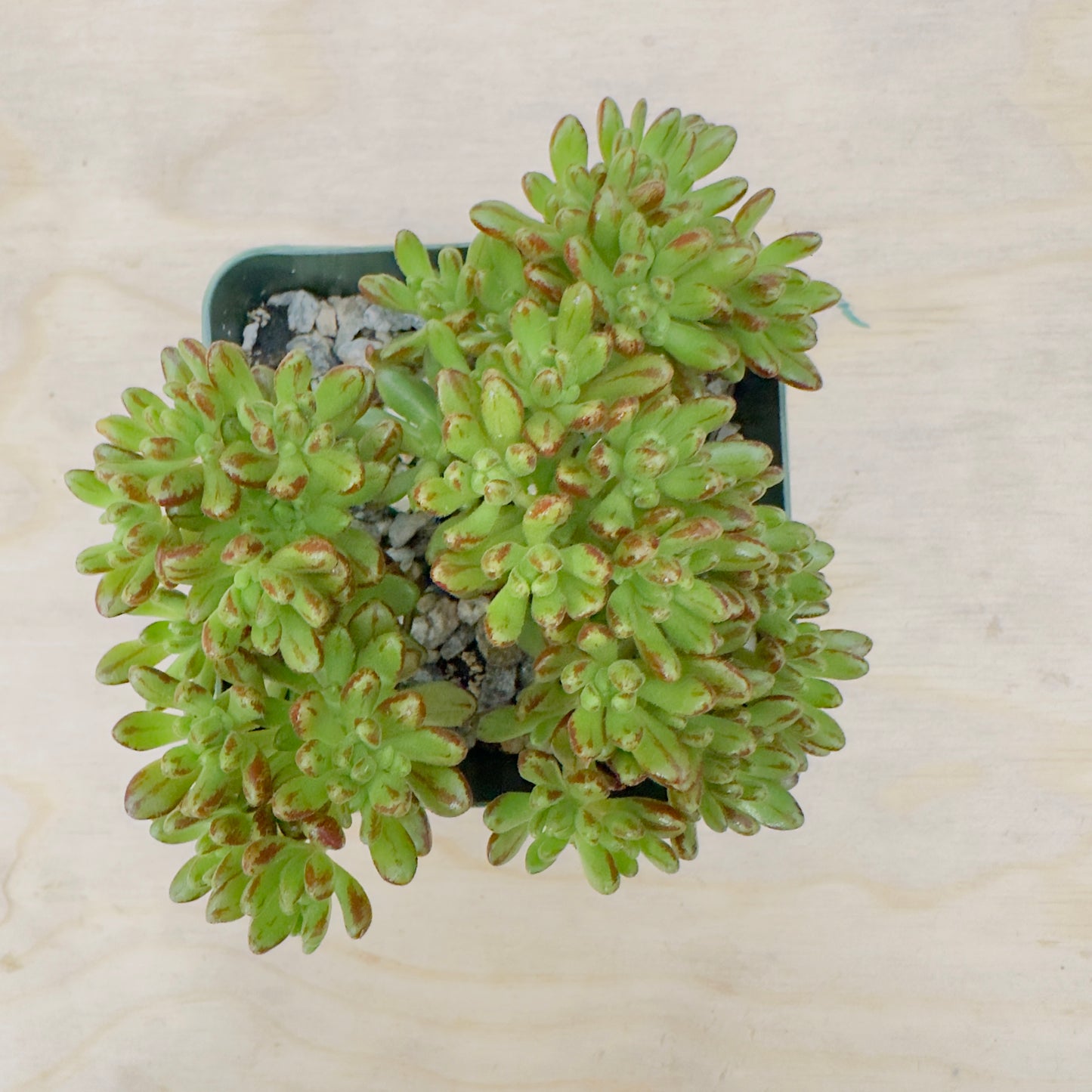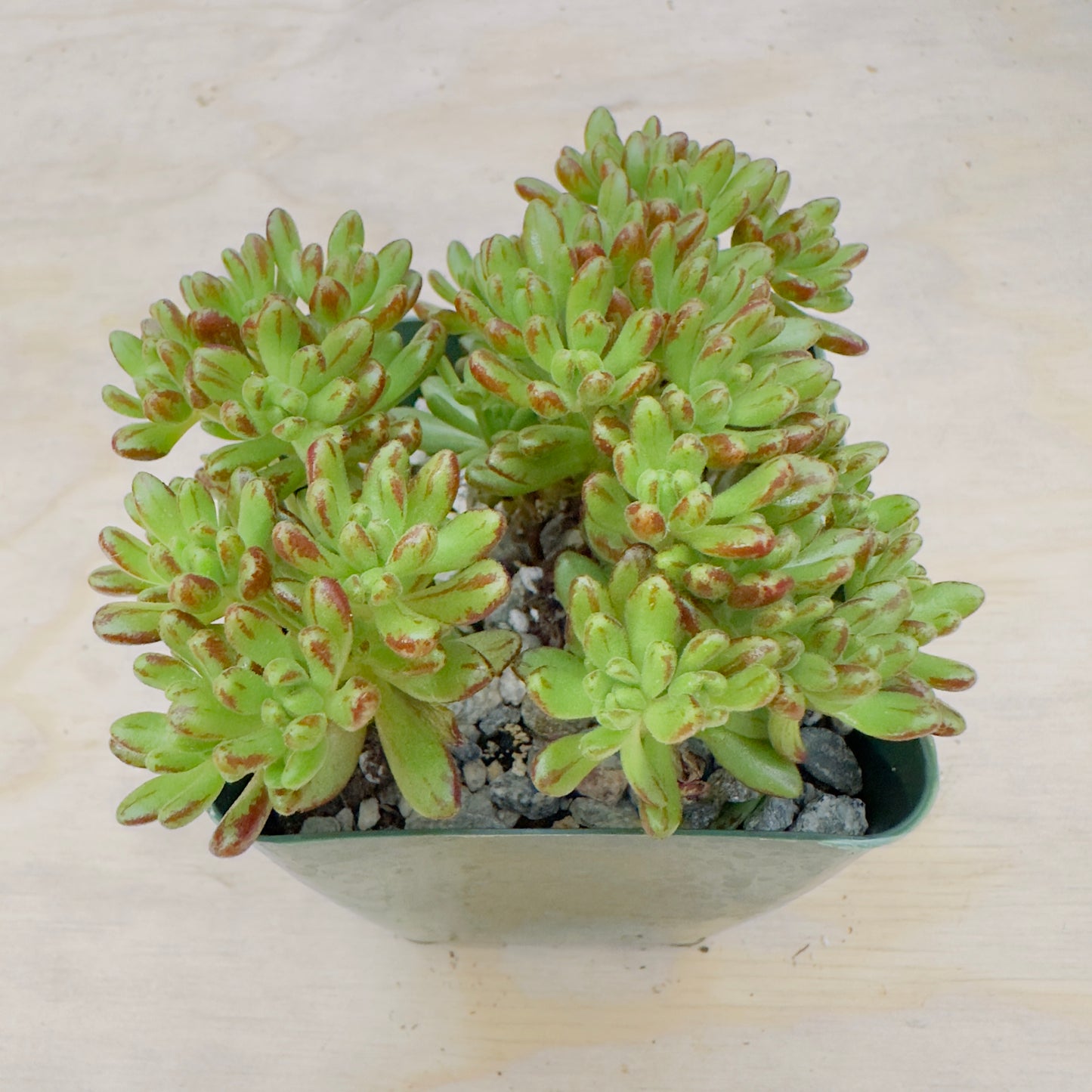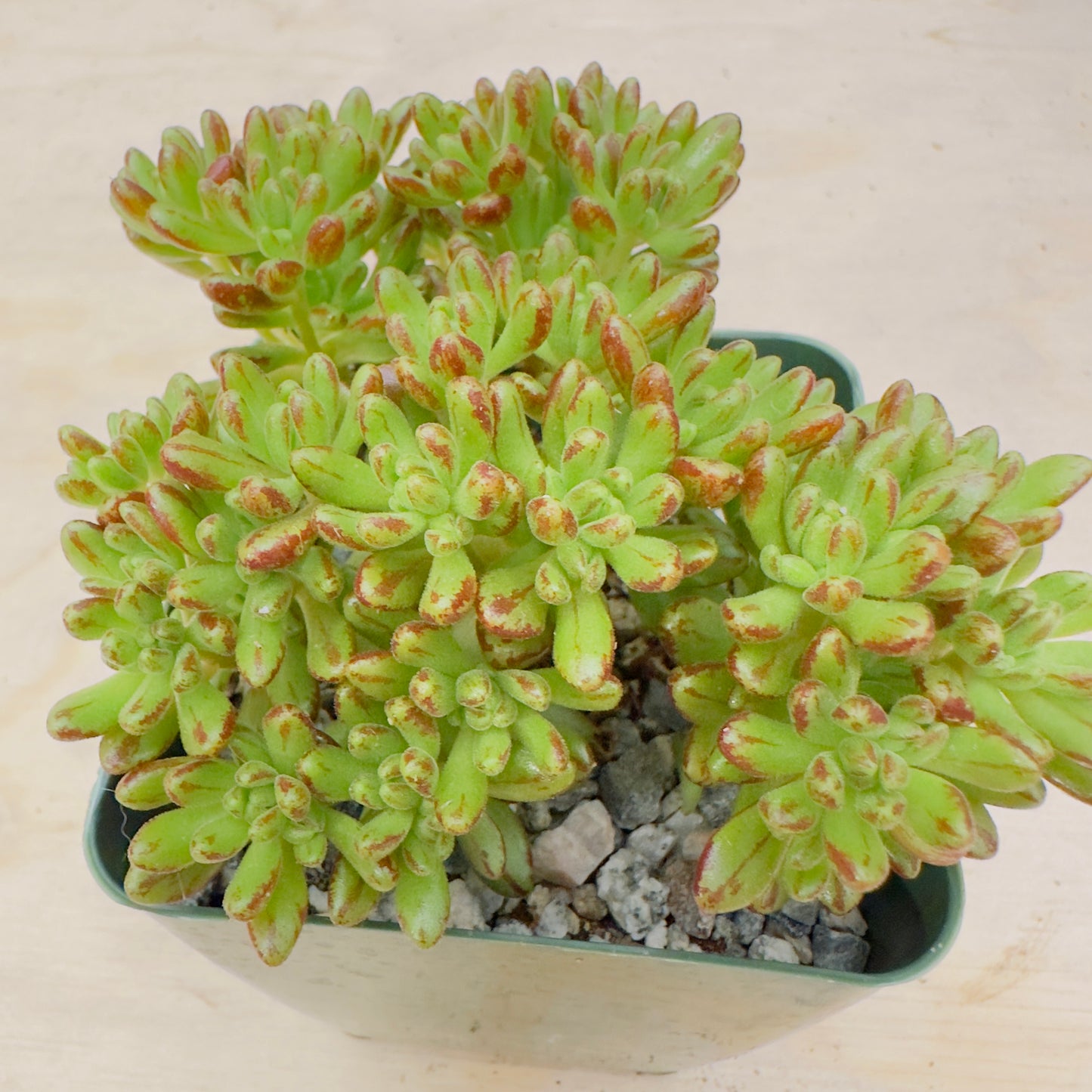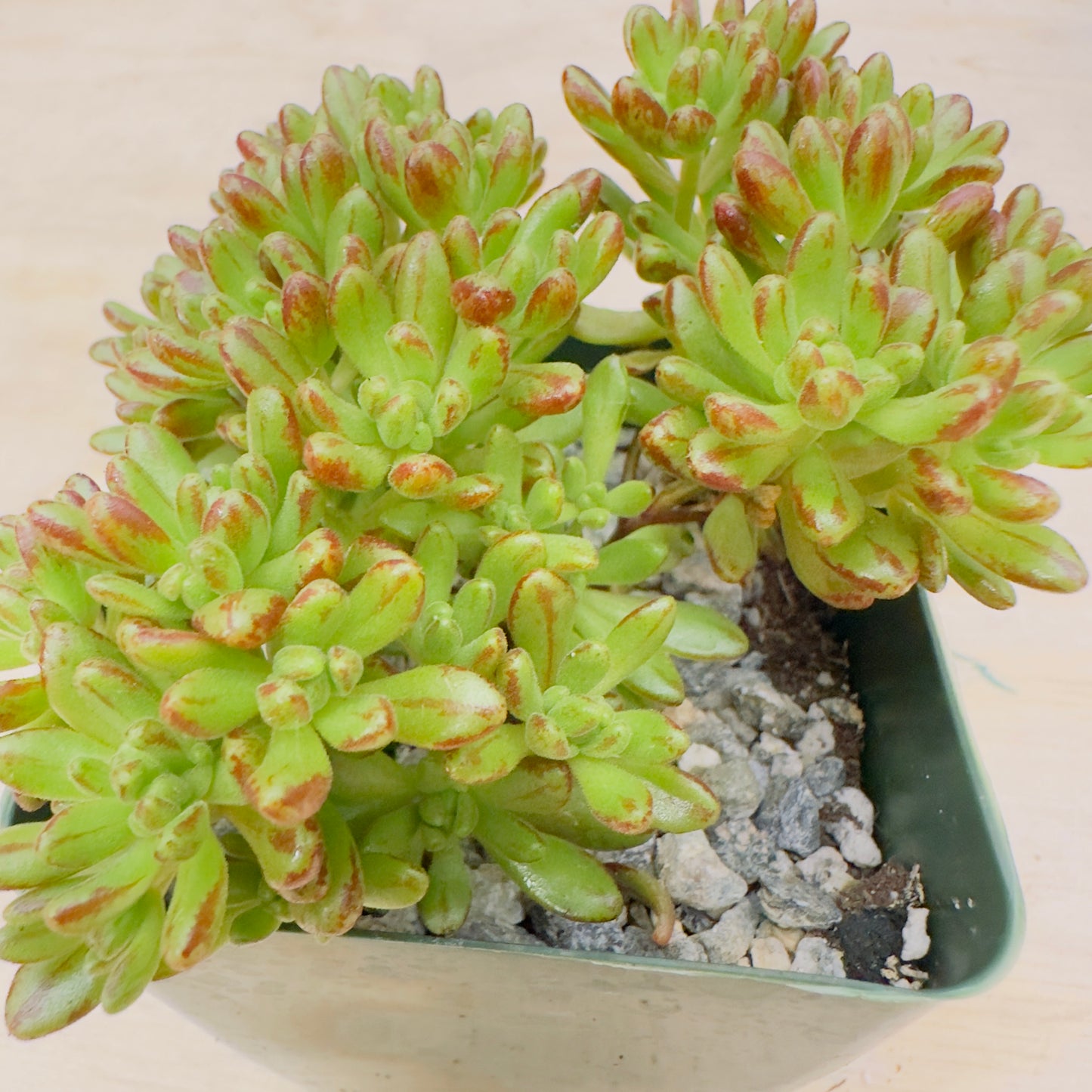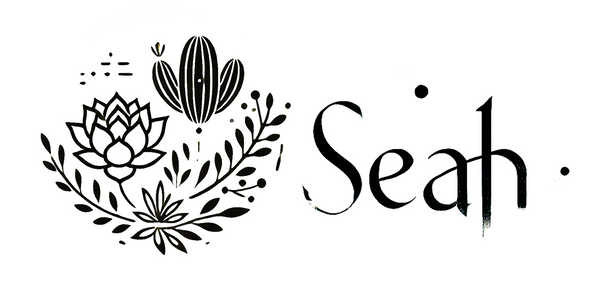Aeonium sedifolium - Dwarf Aeonium
Aeonium sedifolium - Dwarf Aeonium
In stock
Couldn't load pickup availability
📝 Description
Morphological Characteristics
Aeonium sedifolium is a charming, miniature succulent species known for its compact form and marbled foliage. Unlike many larger aeoniums, this species stays low and branched, creating a dense mat of stems lined with tiny, rounded leaves.
The leaves are green with distinctive red or purple striping and spotting, which intensifies in bright sunlight or with seasonal stress. These markings give it a speckled, almost reptilian appearance. Each leaf measures just a few millimeters across, and the plant overall forms a mound around 5–10 cm (2–4 inches) tall.
In spring to early summer, it produces delicate, star-shaped yellow flowers in loose clusters atop thin flowering stems. These blooms contrast beautifully against the richly colored foliage.
Growth Habits
This is a small, spreading aeonium ideal for ground cover in warm climates or container gardening. It branches freely and creates a cushion-like mass over time. It is a short-lived perennial that can reseed itself under ideal conditions.
Its slow but steady growth makes it a good candidate for rock gardens, mixed succulent bowls, or terrariums with excellent airflow and drainage.
Maintenance Points
• Lighting: Best color and compact growth occur in full sun to partial sun. Indoors, place in the brightest spot available.
• Watering: Water when soil is dry. Avoid letting it sit in wet soil. Reduce watering in winter or during dormancy.
• Soil: Needs sandy or gritty, fast-draining soil. Avoid organic-rich, moisture-retentive mixes.
• Temperature: Prefers mild climates; ideal temperature range is 15–25°C (59–77°F). Protect from frost.
• Fertilization: Use diluted succulent fertilizer in spring and early summer for best performance.
• Handling: Easy to handle; non-toxic and pet-safe. Leaf markings may fade if plant is kept in low light.
Display & Use
Aeonium sedifolium is perfect for:
• Fairy gardens and miniature arrangements
• Edging in succulent planters or raised beds
• Terracotta pots or white ceramic containers to contrast its markings
• Companion planting with small sedums, crassulas, or sempervivums
🌿 Care Tips
Plant Care
Light
Water
Soil
Temperature
Hardiness
Fertilizer
Propagation: Leaf/offset cuttings
Common issues: Etiolation, mealybugs, rot
🌟 Note: It’s normal for succulents to appear slightly shriveled after shipping. They usually recover within a few days in a suitable environment.
📦 Shipping Info
Seah Shipping Policy
Effective Date: November 2025
This Shipping Policy applies to orders delivered within the continental United States (the lower 48 states). By purchasing from Seah, you agree to the terms below.
1) Shipping Cost & Free Shipping
- Automatic rate calculation: Shipping is calculated at checkout based on weight, destination ZIP and carrier rates.
- Free Standard Shipping: Orders $59+ (pre-tax, after discounts) ship free to the lower 48 states.
- Alaska, Hawaii, Puerto Rico & other territories: Not eligible for free shipping or standard flat offers at this time.
- Taxes/Duties: Applicable sales tax and any fees are shown at checkout.
2) Processing Schedule
- Business days only: We process and ship Monday–Friday. No shipping on weekends or U.S. federal holidays.
- Handling time: 1–3 business days after payment confirmation.
- Cut-off time: Orders placed before 3:00 PM (PST) are prioritized for same-day processing; others roll to the next business day.
- Changes/Cancellations: Email support@seah.co within 12 hours of purchase; after that, the order may already be in processing.
3) Transit Times
| Method | Estimated Transit | Total ETA (Handling + Transit) |
|---|---|---|
| Standard | 5–8 business days | 6–11 business days |
| Express | 3–4 business days | 4–7 business days |
ETAs are estimates. Weather, holidays, carrier delays or high-volume periods may extend delivery times.
4) Seasonal Temperature & Plant Safety
- Winter (Nov–Mar): We strongly recommend adding a heat pack at checkout to protect plants from freezing. Orders shipped without a heat pack during cold conditions are not covered for cold damage.
- Summer heat: During extreme heat waves, we may hold shipments until temperatures normalize. We’ll notify you if there’s a hold.
- Packaging: Plants are carefully packed (bare-root or potted by type/size) to minimize transit stress.
5) Carriers & Tracking
- We ship via USPS / UPS / FedEx, selected automatically for best service to your address.
- When your order ships, you’ll receive a tracking email. Tracking typically activates within 24 hours.
- If you haven’t received tracking within 3 business days, contact us at support@seah.co or +1 (626)-999-1314.
6) Address Changes & Delivery Issues
- Before shipment: Request address changes within 12 hours of ordering.
- After shipment: We can’t modify the address once dispatched. Please contact the carrier for redirection options.
- PO Boxes: Supported for USPS only; UPS/FedEx require a street address.
- Seah isn’t responsible for delays or loss due to incorrect addresses provided at checkout.
7) Service Area
We currently ship to the continental U.S. (lower 48 states). Orders to AK/HI/PR and other territories are not eligible for free shipping and may be restricted.
8) Support
- Hours: Mon–Fri, 9:00 AM – 5:00 PM (PST)
- Phone: +1 (626)-999-1314
- Email: support@seah.co
- Address: 7870 Margaux Pl, Rancho Cucamonga, CA 91739, United States
Thank you for supporting our California nursery—each plant is hand-selected and packed with care. 🌱
